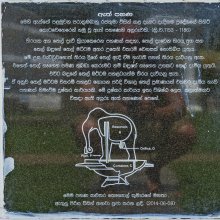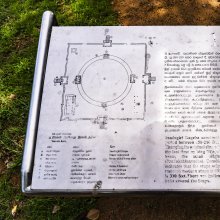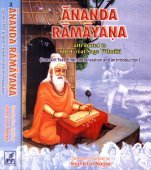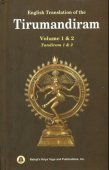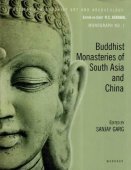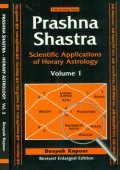Usa, Uṣā, Usā, Ūsa, Usha, Uṣa, Ūṣā, Ūṣa: 29 definitions
Introduction:
Usa means something in Hinduism, Sanskrit, Jainism, Prakrit, Buddhism, Pali, Marathi, Hindi, biology. If you want to know the exact meaning, history, etymology or English translation of this term then check out the descriptions on this page. Add your comment or reference to a book if you want to contribute to this summary article.
Usa has 28 English definitions available.
The Sanskrit terms Uṣā and Uṣa and Ūṣā and Ūṣa can be transliterated into English as Usa or Usha, using the IAST transliteration scheme (?).
Images (photo gallery)
(+1 more images available)
Languages of India and abroad
Sanskrit dictionary
[Deutsch Wörterbuch]
Source: Cologne Digital Sanskrit Dictionaries: Böhtlingk and Roth Grosses Petersburger WörterbuchUṣa (उष):—
--- OR ---
Uṣa (उष):—2. (von 3. uṣ) adj. begierig, verlangend: sā vasu.dadhatī.śvaśurāya. vaya.uṣo.yadi.vaṣṭyantigṛhāt [Ṛgveda 10, 95, 4.] — Hierher könnte uṣa m. = kāmin Liebhaber [Medinīkoṣa ṣ. 4] gezogen werden.
--- OR ---
Uṣa (उष):—3.
1) m. a) Bdellium [Medinīkoṣa ṣ. 4.] — b) salzhaltige Erde [Śabdaratnāvalī im Śabdakalpadruma] —
2) n. fossiles Salz [Ratnamālā im Śabdakalpadruma] — Vgl. ūṣa .
--- OR ---
Uṣā (उषा):—1. (von 1. uṣ) f. das Brennen, Glühen: uṣācoṣaparidāhadhūmāyanāni [Suśruta 1, 82, 1. 85, 12.] uṣāsrāvānvita [2, 19, 6.]
--- OR ---
Uṣā (उषा):—
--- OR ---
Uṣā (उषा):—3. (wie eben) adv. gaṇa svarādi zu [Pāṇini’s acht Bücher 1, 1, 37.]
1) bei Anbruch des Tages [Amarakoṣa 3, 5. 18.] [Trikāṇḍaśeṣa 1, 1, 104.] [Hemacandra’s Abhidhānacintāmaṇi 1536.] [Anekārthasaṃgraha 7, 48.] [Medinīkoṣa ṣ. 4. avyaya (s. Med.) 78.] ardhāstamayātsaṃdhyāvyaktībhūtā na tārakā yāvat . tejaḥparihāniruṣā bhānorardhodayaṃ yāvat .. iti tithitattve varāhavacanam [Śabdakalpadruma] —
2) in der Nacht (Abenddämmerung?) [Hemacandra’s Abhidhānacintāmaṇi 1533.] [Anekārthasaṃgraha] [Medinīkoṣa avyaya (s. Med.)]
--- OR ---
Uṣā (उषा):—4. fehlerhafte Schreibart für ukhā [Ramānātha] zu [Amarakoṣa 2, 9, 31.] [Śabdakalpadruma]
--- OR ---
Ūṣa (ऊष):—
--- OR ---
Ūṣā (ऊषा):—f. Nomen proprium der Gemahlin Aniruddha's [Harivaṃśa 9910. fgg. 10879. 10883. 10908. 11025. fgg.] — Vgl. uṣā 4.
--- OR ---
Uṣā (उषा):—2.
2) uṣātyaya Ende der Nacht [Varāhamihira’s Bṛhajjātaka S. 63, 1.] —
4) [Oxforder Handschriften 27,a,35. 200,a,9.] [Kathāsaritsāgara 73,108.] — Vgl. ūṣā .
--- OR ---
Uṣā (उषा):—3. [Z. 3. fg.] die aus [Śabdakalpadruma] mitgetheilte Stelle steht [Varāhamihira’s Bṛhajjātaka S. 47, 21], wo richtig mukhād st. uṣā gelesen wird; also einfach zu streichen.
--- OR ---
Ūṣa (ऊष):—
1) a) [Taittirīyabrāhmaṇa 1, 3, 7, 6. 3, 12, 6, 2.] puṭa [Taittirīyasaṃhitā I, 1040, 1.]
--- OR ---
Ūṣā (ऊषा):—[Bhāgavatapurāṇa 10, 62, 1. 12.]
Source: Cologne Digital Sanskrit Dictionaries: Sanskrit-Wörterbuch in kürzerer FassungUṣa (उष):—1. —
1) Adj. begierig , verlangend. —
2) *m. Liebhaber.
--- OR ---
Uṣa (उष):—2. —
1) *m. — a) salzhaltige Erde. — b) Bdellion. —
2) f. ā das Brennen , Glühen. —
3) *n. fossiles Salz.
--- OR ---
Uṣa (उष):—3. —
1) *m. Ende der Nacht Med. sh. 4. —
2) f. uṣā — a) Frühlicht , Morgenröthe. — b) Nacht [Carakasaṃhitā 6,18.] [Wilson's Uebersetzung des Viṣṇupurāṇa ,8,48.] — c) *Kuh. — d) Nomen proprium einer Tochter Bāṇa’s und Gattin Aniruddha’s [Agnipurāṇa 12,46,52.] —
3) uṣā *Adv. — a) bei Anbruch des Tages ; — b) in der Nacht.
--- OR ---
Ūṣa (ऊष):—1. —
1) m. — a) salzige Erde , Steppensalz. — b) Vieh (nach den [BRĀHMAṆA.]). —
2) f. ūṣā = 1)a) [Kātyāyana’s Śrautasūtra 4,8,16.] —
3) ūṣī mit Salz geschwängerter , unfruchtbarer Boden.
--- OR ---
Ūṣa (ऊष):—2. —
1) *m. — a) Morgendämmerung. — b) Spalte , Höhle. — c) Ohrhöhle. — d) das Gebirge Malaya. Vgl. uṣas. —
2) f. ā Nomen proprium v.l. für 3. uṣa 2)c).
Sanskrit, also spelled संस्कृतम् (saṃskṛtam), is an ancient language of India commonly seen as the grandmother of the Indo-European language family (even English!). Closely allied with Prakrit and Pali, Sanskrit is more exhaustive in both grammar and terms and has the most extensive collection of literature in the world, greatly surpassing its sister-languages Greek and Latin.
See also (Relevant definitions)
Starts with (+164): Ucakam, Ucakkaiyar, Ucal, Ucalattam, Ucalattu, Ucalatu, Ucali, Ucalvari, Ucam, Ucanan, Ucanar, Ucar, Ucar-payarrukari, Ucaritam, Ucarkalam, Ucarparuvam, Ucatal, Ucatevi, Ucattunai, Ucatu.
Ends with (+1087): Aba-musa, Abanusa, Abhusha, Abhyupetyashrusha, Abhyupetyashushrusha, Abhyusha, Acakkhusa, Acakshusha, Acaryapurusha, Accankusa, Acronychia retusa, Adabajusa, Adamusa, Addhapurusha, Adeshapurusha, Adhamapurusha, Adhikarapurusha, Adhipaurusha, Adhipurusha, Adhrusha.
Full-text (+238): Ushas, Ushakala, Ushapati, Ushara, Usharamana, Citralekha, Usar, Ushahkala, Abhyusha, Aushasa, Ushah, Ushakkalam, Us, Vanasuta, Banasuta, Ushavat, Ushacarita, Ushanidana, Ushesha, Ushaharana.
Relevant text
Search found 99 books and stories containing Usa, Uṣā, Usā, Ūsa, Usha, Uṣa, Ūṣā, Ūṣa, Ushaa; (plurals include: Usas, Uṣās, Usās, Ūsas, Ushas, Uṣas, Ūṣās, Ūṣas, Ushaas). You can also click to the full overview containing English textual excerpts. Below are direct links for the most relevant articles:
Women in the Atharva-veda Samhita (by Pranab Jyoti Kalita)
25. Goddess Uṣas < [Chapter 4 - Female Deities and the Glorification of Women in the Atharvaveda]
19. Goddess Rātri < [Chapter 4 - Female Deities and the Glorification of Women in the Atharvaveda]
8. Goddess Ekāṣṭakā < [Chapter 4 - Female Deities and the Glorification of Women in the Atharvaveda]
Rig Veda (translation and commentary) (by H. H. Wilson)
The Vishnu Purana (by Horace Hayman Wilson)
Chapter XXXII - Description of Usha the daughter of Bana < [Book V]
Chapter VIII - Origin of Rudra: his becoming eight Rudras < [Book I]
Chapter XXXIII - Battle of Krishna and demon Bana < [Book V]
Lord Hayagriva in Sanskrit Literature (by Anindita Adhikari)
Saṃhitā (1): Divine steed in the Ṛgveda < [Chapter 2]
Brāhmaṇa (1): Aśvamedha or Horse sacrifice < [Chapter 2]
Trishashti Shalaka Purusha Caritra (by Helen M. Johnson)
Chapter VIII - The episode of Sāgaracandra < [Book VIII - Nemināthacaritra (Jain Harivamsa)]
Part 4: Kidnapping of Uṣā < [Chapter VIII - The episode of Sāgaracandra]
Part 5: Killing of Bāṇa < [Chapter VIII - The episode of Sāgaracandra]
Chaitanya Bhagavata (by Bhumipati Dāsa)
Verse 2.1.250 < [Chapter 1 - The Beginning of the Lord’s Manifestation and His Instructions on Kṛṣṇa-saṅkīrtana]
Verse 2.1.52 < [Chapter 1 - The Beginning of the Lord’s Manifestation and His Instructions on Kṛṣṇa-saṅkīrtana]
Verse 2.1.141 < [Chapter 1 - The Beginning of the Lord’s Manifestation and His Instructions on Kṛṣṇa-saṅkīrtana]
Related products
(+1 more products available)
